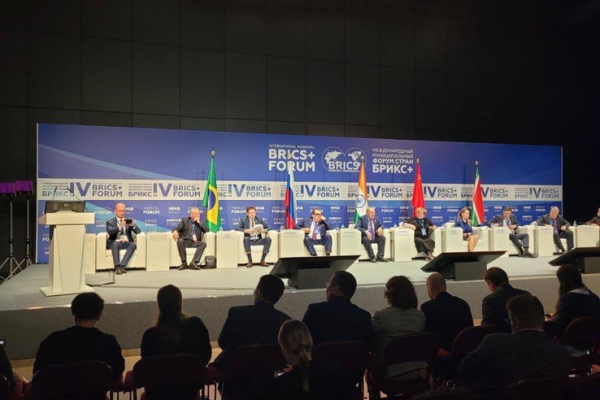Cooperation with the states of the Asia-Pacific region opens up new opportunities for the Leningrad Region, including for local self-government. Vice Governor Anna Danilyuk spoke about this within the framework of the IV International Municipal Forum of the BRICS+ countries.
“The collective fatigue accumulated in the world from the dictates of supporters of a unipolar world order, and, as a result, the emerging crisis of confidence in such powers, only stimulate all other countries to search for and develop new formats of cooperation, to build new systems for making collective decisions based on real mutual respect and equality of partner countries. It is on these principles that the interaction of the BRICS countries is built,” said Anna Danilyuk, Vice Governor of the Leningrad Region for Domestic Policy.
Currently, there are 14 cooperation agreements between the municipalities of the Leningrad Region and China. The dialogue with India in the spheres of culture, education and sports has been intensified. The issue of closer cooperation with partners from the Eastern Cape of South Africa in the development of investment and trade and economic relations, in the areas of environmental protection, organizing youth exchanges, and employment is being worked out. This year, the Leningrad Region and Hebei Province (PRC) are celebrating the 30th anniversary of the establishment of friendly ties.
Reference
BRICS is an association of five countries, which includes Brazil, Russia, India, China and South Africa. It was formed in 2006 on the initiative of the Russian side. The BRICS countries are a large-scale global market. The total number of their inhabitants is about 3 billion people, namely 41% of the world population. The main areas in which BRICS members cooperate are trade, investment, digital agenda and sustainable development. The International Municipal Forum of the BRICS+ countries has been implemented since 2019.





